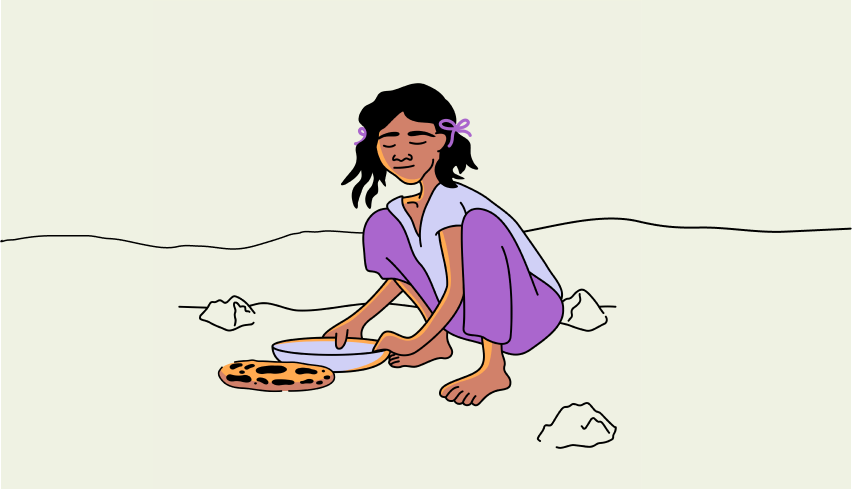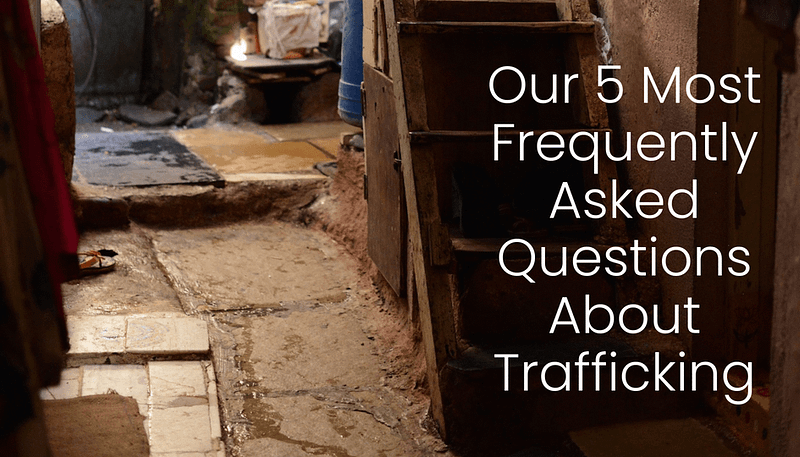January is Human Trafficking awareness month, and we wanted to cover some of the questions we often get asked about trafficking. Here we highlight the five most commonly asked questions we get about human trafficking in brief and provide resources for deeper learning. We encourage you to explore the resources linked with each question to deepen your understanding of trafficking.
What is social oppression, and how does it relate to human trafficking?
Social oppression is the act of unfairly treating a person or group of people who are different from other people or groups of people. This happens when those with higher social status will use their status or power as leverage to oppress disadvantaged people. Depending on culture, race, gender, religion, and economic status are common societal factors that are oppressed. This relates to trafficking because traffickers seek to exploit vulnerable people – often people who have less social standing based on how their culture values them. These people in society are thought of and fought for the least. Check out our “Social Oppression and Human Trafficking” blog to learn more about social oppression as it relates to trafficking.
As culture can determine how people are valued in society, culture can have an impact on trafficking in other ways as well.
How does worldview and culture influence trafficking?
Culture and worldview can impact trafficking when the culture has an unhealthy view of people and a desire for sexual content. When a culture begins to approve or condemn something, it influences the worldview of individuals. Many cultures today have come to accept and indulge in explicit sexual content, such as pornography. As the consumption of explicit sexual content has become normalized, more people are watching, craving, and paying to consume. This has created a demand for sexual content to be produced and a desire for people to engage in the sexual ideas that content portrays. This demand makes trafficking more profitable, as traffickers looked to profit from exploiting women and children to create pornography and engage in sexual services. The demand has only increased since the advancement of the internet.
It is essential to develop a well-informed worldview because it defines how we see and value the lives of others. Culture can approve of anything en masse, but individuals control worldviews, and you can choose a different conviction. The kind of conviction that sees each life as valuable and worth fighting for.
To better understand culture, worldview, and their impact, check out our 2-part blog series.
How Culture Impacts Your Worldview
How Culture Impacts Your Worldview – Part 2
Debased cultural views of people and sexual content are largely to blame for the rise and demand for another cruel service known as sex tourism.
What is sex tourism?
Sex tourism is exactly what it sounds like – people travel to have sex with girls, often young girls. Sex tourism occurs in countries where sex work is legal or less restricted and usually has a younger age of consent. In countries that have legalized prostitution, traffickers use this to their advantage by exploiting women and children under the guise of legal sex work. The legality of prostitution makes exploiting these women and children easier to do again and again. Although sex tourism happens mostly in countries where sex work is legal or unregulated, it can still exist in countries where sex work is illegal.
Sex tourism is popular around the world, with regions like Latin America being among the most popular destinations. Although impossible to truly calculate, some research has estimated the yearly global production from sex tourism to be upwards of $20 billion. For more context, check out our Human Trafficking And The Truth About Sex Tourism blog.
Sex tourism is a large part of human trafficking, meaning that those trapped in the sex tourism industry show signs that they are being trafficked.
What are the Signs and nature of Human Trafficking?
Human trafficking is the coercing of people into sex or labor by means of exploitation. Human trafficking is modern-day slavery, which includes sex trafficking, debt bondage, and labor trafficking. Today there are more enslaved people than at any other time in history, totaling 40 million people. One in four of those 40 million slaves is a child. Trafficking is deceptive and abusive, where people are lied to, tricked, taken advantage of, and treated without dignity. Women and children are often the most vulnerable to traffickers, who take away their autonomy over their lives. Those who fall into trafficking have various risk factors and characteristics of exploitation. To learn more about the signs and risk factors of trafficking, check out “The Nature of Human Trafficking.”
As you learn about the signs and risk factors of trafficking, you will notice that hunger is one of the major factors that make people vulnerable to traffickers.
How does hunger affect trafficking?
Traffickers aim to take advantage of the most vulnerable people. Children who lack basic needs are the most vulnerable of all. This is because basic needs like food and water are necessary for a healthy life, and traffickers can leverage that need to exploit children. This problem is escalated when an entire community is fighting hunger because traffickers will become more active within that community. This is why making nutritious food accessible to at-risk children and their families is vital to trafficking prevention. Food for an entire community keeps children from going hungry, eliminating a huge risk factor traffickers try to leverage (the same is true for clean water). This keeps traffickers from remaining active in those communities.
Check Out “Why Is World Hunger So Hard To Solve?” | SOS International
We are so thankful for a community that continues to learn about trafficking. If you know anyone looking to learn more about trafficking, this is a great resource to share to get them started!






